#Tanith Lee's Red as Blood
Text
Old short story I wrote a couple of years ago and then forgot about. Remembered it the other day, gave it a bit of a brush up, and figured I'd share it. My own take on the old "Dark Snow White" retelling
Sunlight and Snowdrops

Father is sending us away tomorrow, sent for schooling at a monastery far off in the south. His new wife--The Usurper, who I will not grace with the title of queen-- tells us of the walled gardens, where pomegranates and figs grow almost year round on trees with leaves as large and tall as a man, a place where the sea still rushes up freely to meet the shore, long stretches of golden sand, forever warm to the touch.
She has talked of little else for months now, as if she and Father hope that such constant chatter will somehow soften us to the idea of our exile, make us forget the kingdom she has stolen from us, just as she has stolen his heart. And perhaps with my sisters she has somewhat succeeded . They always did take after Father, with their butter-yellow hair, and skin flushed like ripe peaches. Perhaps they were always more suited for such places. But I am my mother’s daughter, as any who look upon me can tell, and I will not be made to forget.
For how could such a flat, lurid place ever hope to compare with the beauty of my mother’s kingdom? What is a stretch of damping sea-shore to the beauty of a deep lake, forever crystallized into the finest mirror? What are walled gardens with their mad jumble of gaudy fruits to the dark towering pines, whispering to each other as the wind moves through them? What monastery could ever hope to reach heaven in the way that the mountains of the valley swell up in dark waves, to crack the egg-shell gray of the sky?
It is the blue sky of that far off place I fear most of all. What want have I for a sky of unchanging blue, suffocating in it’s immensity, with its one great burning eye beating down to peel and crack my skin in the day, and it’s thousand eyes to stare down at night? My mother’s pale sky has never once burned me, never once stared into my dreams, not with her veils of snow to protect me. Her sky is forever changing, shifting from stillness to storm on her whim. Blasting and breaking, soothing and softening, blanketing all with her beautiful covering of pure, protective white.
But my father’s new queen has poisoned its beauty for him, turning his head with her talk of salted water and coarse sand. If she wishes to retreat to such places, then I say let us be well rid of her. If my father and sisters are fools enough to follow her, to believe the lies she and her counselors and sages have spread about my mother, the rightful queen, then let them be off as well. I know the truth, I have not forgotten, I of all her daughters, have remained faithful.
There are so few of us now. So many have turned away from their true queen. But though loyalty is fragile, memory remains as firm as the ice upon the Great Lake. Despite their seeming love for the Usurper, The common people still tell my mother’s story. The Usurper thinks that because she was once one of them, a drudge plucked from obscurity by the weakness of my father’s will, that their hearts have turned to her in full.
But they can never forget my mother completely, she does not let them.
When the winds howl thick, like wolves at the door, the tale, long and wondrous and wild, is whispered between huddled crones and wide-eyed children.
A tale that takes hold of the mind and heart, as surely as the cold takes to the bones.
It begins in Winter, for indeed, how could it not?
A winter long and dark, when my grandmother, a woman wise in the old ways of the world, sat sewing at her window, looking out into the forest that spreads like an ink stain all round the castle, the snow falling heavy all around her, silencing the world as she made her request to the magic of the woods.
Three drops of her own blood she spilt to gain her heart's desire, a child for her childless king. And a child she received, a beauty such as never been seen. Hair black as the trees of the forest, lips as red as the blood she had given, and skin as white as the purest snow. A child of the winter woods, born on winter’s darkest night.
A life had been granted, and so was a life taken away. My grandmother lived long enough to bless my mother with her name, and the king, who once had so longed for a child, was now too grieved to bear the sight of his new daughter. And so my mother was given over to the wife of the castle’s woodsman, recently blessed with a child of her own, and who, most importantly, lived in a cottage on the edge of the woods, far, far away from the castle grounds, and her mourning father’s eye.
For seven years my mother grew up in the care of the woodsman’s family, as loved as if she were their own blood daughter, and the girls loved each other as sisters. They spent many days beneath the shadows of the trees, and learned much from the woods. They say even then, before she had come into her power, that the creatures and spirits of that place knew my mother as part of their blood, knew that something of her had come from something within them, and protected her for it.
It was in the winter of her fifth year that she met my father, a lad of nine, trapped within an enchanted bearskin. She and her foster sister brought him into the warmth of their cabin, saving his life, and each winter for three years after, he returned. She told me once that those winters were some of the happiest memories of her life, surrounded by those she loved in the shelter of the snows.
It was in summer that her sorrows came.
It was in summer that my mother discovered the gnome that had cursed her bear, and by his death my father was freed from his enchantment, only to then return to his own far off kingdom. It was in summer that my mother was parted from her foster family, recalled to court at last--only to find her own usurper on her father’s arm.
The people of the land adored the lady who had come to them out of the sun-drenched south, calling her their Summer Queen, praising her for the abundance that had blessed the lands since she had wed the king. And surely there was never a woman so beautiful. They say that her hair flowed like sunlight itself down her shoulders until it touched the floor, braided all over with flowers of every hew, and her eyes were as blue and bright as an August morning.
My mother said she could feel those eyes trying to melt her the moment she was brought before them.
My mother was not at court long. One day, the Summer Queen surprised her with a visit from her foster-father, and though he smiled at her, his eyes seemed grim and troubled. They traveled together down to the edge of the woods, far from the eyes of any in the castle--and there he took out the knife, carved all over with flowers, to cut out her heart.
(He claimed later, when the coup was over, and my mother restored to the throne, that he had only done so to protect his family, his own little daughter. My mother granted him the same pity he had shown her, and sent him into the woods, alone and unarmed. I do not know to this day if he fell to the animals or the cold that finally came, but by all accounts, he was never seen again.)
My mother, for her part, wandered for months alone beneath the boughs of the woods. The animals did not harm her, the woods knew its own, but she dared not venture near the edges where human souls still delt, fearful now that any might betray her to the Summer Queen. And as remarkable as she was, she was still only a child, and had never had to care for herself before, and she longed for the cheer and company of creatures like herself.
More than that, the heat of a seemingly endless summer wore at her. August passed into September and September to October and on, with nary a change to be seen. The leaves on the trees remained green, and did not fall. The rivers ran along as full and fat as ever, though there was no snow left to feed them. The sun felt like a great eye, searching for her beneath the sheltering shadows of the forest. Only at night did she find respite, and she longed for the relief of a winter that never came.
Farther and farther she wandered, seeking someplace where she might find some sign of chance, some shelter from the daylight that stretched longer and longer. At last, she found herself upon the slopes of the farthest mountain. Her feet were worn ragged from wandering, and her tongue was cracked from the heat, but with the last of her strength, she managed to stagger to the summit, and there, in a hollow tucked into the dark shadows of the peaks, so dark that even the hottest of summers could not fully touch them, she found snow.
And there her strength finally deserted her. She lay down upon the snow as contentedly as if it had been a feather bed, and might have slipped into the endless sleep beneath that cold coverlet, had it not been for the little men.
The frozen-beards, the valley people call them. Dwarfs that live in the fields of ice upon the mountains, having little to do with the valley people. They delight in the cold, they are said to be able to call up snow storms to hide their homes,and in winter they might be seen galloping along in the wake of an avalanche as happy as a child at play. But for all the ice of their beards, they are warm of heart, and they took the half-frozen child into their home as readily as if she had been one of their own.
For seven years, my mother at last knew peace. In the caves of the mountains she learned much of the songs and stories and skill of her new family. She learned the shaping of swords and the setting of gems,and the summoning of wind and fog, and was happy.
But nothing lasts forever, and at last, summer found her patch of hidden winter.
The king of a far-off land had proclaimed his intention to visit our valley kingdom, which had grown in renown-- and profit-- thanks to the summer that seemed trapped within the crown of our mountain valley. The rivers and Great Lake were never clear of vessels shipping goods out and bringing gold in. Both people and purses grew fat from the bounty, and basked in the seemingly endless sunshine.
There was one stain however, upon the glorious reign of the Summer Queen, though it was only spoken of in whispers, for it would not do to complain of such small misfortune within the wake of so many blessings.
The Draining Sickness.
It came on quickly, overnight in some cases. Those afflicted withered away, drained, pale and almost bloodless, like unwatered plants beneath the noon-day sun. No one knew how it spread, it seemed to only strike one village at a time; and oddly the most healthy and comely succumbed first, as if offended by their vitality and beauty.
Fate however, seemed inclined to some mercy. For each village that was stricken with loss soon found itself blessed with an overflowing of crops and commerce, as if Death felt some blood money was owed.
It was not only the young and lovely who were taken though. The old King, my mother’s father, was struck down on Summer’s Eve itself— along with seven young girls from each of the surrounding villages. But the grief over these deaths was short-lived, such was the glory of the days that followed, the golden sunlight drying the tears from the cheeks of the mourners even as they fell. Indeed, it seemed hard to grieve anything beneath the sun of that long, long summer. The Summer Queen, clothed in green and yellow and scarlet and blue, wore only a black ribbon around her neck for mourning, and none falted her.
It was then that the rumors came, rumors that the visiting king was not only there to see the beauty of the valley, but of its women as well. Indeed, those coming before his entourage said that he was seeking out one who was rumored to be the Fairest of them All.
The Summer Queen, shining almost to match the blazing endless sun, was more than happy to aid him in his search. And it was undoubtedly her efforts to ensure her own success in fulfilling the terms of his quest which led her to discover that my mother’s heart--which she thought she had devoured seven years ago, at the start of her endless summer --still beat it’s red,red blood within her snow white breast.
A grand celebration was proclaimed in the king’s honor, a festival of such magnificence as had never been seen outside of the old stories, and travelers came from all the surrounding lands to take part, ply their trades, and sell their wares. Up and over the mountains they came, and several passed by the cave where my mother dwelt.
Was it any wonder that my mother, still so young, having found a measure of peace in that snowy valley which soothed the burns upon her soul, and made her long to return somewhat to the world of men and look once more upon human faces, took in good faith the laces, brought by from far by the cargo boats; the comb, carved and painted so cleverly with a myriad flower; and finally, most beautiful blood-red summer apple, grown in her father’s own orchard?
When my mother woke again-- to the face of my father, returned from afar at last to find the girl who had freed him from his curse, and had now freed her in return-- she was not so naive.
My father had brought many men with him, and the people of the valley had grown slow and complacent in their bounty. When his men came with their swords, and the frozen-beards called up their icy winds, and my mother rode down upon the capitol in a sleigh made from her own glass coffin, they were not prepared to withstand the onslaught. Soon enough all had either fallen to their knees —or fallen where they stood.
The Summer Queen danced at my mother’s wedding, in shoes crafted by my mother herself, in the art taught to her by her foster-fathers. Shoes which returned upon the Summer Queen all the heat of the sun which she had stolen by her sacrifices and bloody rites.
Then my mother took up her rightful throne, and winter came at last to the valley.
My mother and father were wed in the open courtyard, as the snow fell like diamonds all around them, and all agreed they had never seen a more beautiful sight. My mother’s foster sister, who had remained loyal to her true queen, was reunited with her, and wed to my father’s brother. Children followed both of them after, and for many years, the natural order of the seasons came and went.
It was on my seventh birthday that my mother found the mirror, tucked behind a tapestry woven with fruit and flowers, in the abandoned tower of the Summer Queen.
No one knows where the Summer Queen obtained the mirror. Some have claimed it was a wedding gift from her godfather, a fallen priest who had taken supper at the Scholomance. Others that she crafted it herself, from water and moonlight, on a witch’s sabbath. But my mother told me once that the mirror was only a shard of a greater whole, and that the Summer Queen had only happened upon it, and though her own powers were great, her vain and narrow mind only able to discover the basest powers of the mirror.
But my mother-- born of blood and snow and forest, learned in the lore of the mountain folk, the perfect inversion in shape and soul of the Summer Queen-- could feel at once what was before her. She had higher aspirations than to know of mere beauty. After all, why should she trouble herself over such trivial questions?
She was, and is, the Fairest of them All.
No, my mother asked for vision and clarity, and the mirror readily supplied, showing her the darkness that lay in the hearts of men, the twisted, choking desire she had already tasted in an apple grown of blood and summer heat, and she knew what she must do.
That night, on Summer’s Eve itself, the snows began to fall.
The winters lie heavy on our land now, as heavy as summer once did. Our borders have shrunken back to what they were before the days of the Summer Queen. The rivers she once choked with cargo boats and merry-makers now flow freely beneath the protection of their own glass coffins. The flowers that once crowned her traitorous head have not been seen in many a year. The mountains are eternally capped with snow, the frost-beards no longer trapped within their narrow valley. Our kingdom, once vibrantly flushed with the blood of those taken to feed an endless summer, is now white and pure, cleansed by the endless falling snow.
My mother saved her kingdom from a blood soaked opulence, from a land made rich and fat off the hearts of their own, and yet they still turned upon her. Called her witch, demon, and worse. In the end, as the purifying snows fell heavier and heavier, The Usurper-- covered in ash from the fires she’d set to hold the snows at bay-- besieged the capitol. With her brother at her side, with an army of thred-bare shop-keepers and merchants laid low, she came up the Great Road with as much pride and assurance as if the crown sat already upon her head.
My aunt, foster-sister of my mother, and others who remained loyal, who knew their true queen for the power that she was, fought back. Indeed, my aunt and the wolves that answered to her slew The Usurper’s brother upon the very threshold. But the faithful were soon overwhelmed. The few who survived were driven into the woods, seeking the shelter that had been granted to my mother. The Usurper had the trees set ablaze, calling out that the dark powers of the forest would not be allowed to aid the followers of a witch. Her army came right up to the palace gates. And my father, my dear, foolish, fearful, traitorous father, who’s heart had been turned by The Usurper’s treacherous lies--himself unbarred the door for her.
My mother did not flee, whatever they say. She who had vowed to never be driven by anyone again, she who had bent the very elements to her will. She did not flee before The Usurper’s feeble army of ragged townsfolk and treacherous palace guards,even as they tore up her portraits, burned her books, and smashed her mirror into a thousand pieces.
No,they were not granted that victory. When she fell, she fell of her own accord, and her white gown sparkled like snow-flakes in the sun as she dived, down from the window at which her mother had once sat sewing, down, down into the blazing, waiting embrace of the woods that had heard her mother’s prayer.
When the fires at last burned themselves out, they found my mother’s body, ash covered, but untouched by the flames, as if even they could not bear to besmirch her beauty. She was placed once more in the glass coffin that bore her name, and it sat in state for three days in the royal chapel. She was, after all, a king’s daughter, and wife of another. On the third day, it was gone. Some claim she was properly buried, far beneath the ground, with a hawthorn branch in her heart. Others say that the rebels took the coffin, and burned it till the glass was melted down into a lump as black as her hair had been. The faithful say that the frost-beards came in the dark of the night, and reclaimed their daughter, carrying the coffin up once more to the high valley where my father once found her, to await the day when she will awaken again.
If she has not so already.
For though my mother’s crown sits on The Usurper’s head, and her daughters are to be sent to the far corners of the earth, in hopes the heat of the sun and the scent of the flowers will drive her from their hearts, the winter still lays heavy upon the land, and the wind has not ceased to blow since the day that she fell.
Father is sending us away tomorrow, and I do not think he shall be long in following. So many have left already. He longs for the shores of his youth, where the spring and summer follows after the winter. My uncle, his brother, has already returned there, with many of his children. The common folk are leaving as regularly as they can clear the mountain passes, which is not easy in these times. The birds and gentler animals left years ago. Soon, it will be only the wolves that prowl the dark woods, edging closer and closer into the towns as more and more people abandon my mother’s frozen kingdom. They say that the spectre of my aunt can be seen running with the wolves sometimes, when the moon is obscured by clouds, red cloak trailing behind her like blood on the snow.
They can send me away, but I shall find my way back. A thousand’s flowers scents could not make me forget the smell of the pines, a thousand bird’s songs could not drown out the howl of the wind. The bluest of skies cannot burn away the purest of snows. Not all the mirror’s pieces were ground to powder. I managed to save one, one single shard reclaimed in the chaos that shattered my childhood. I have kept it close, reworked and polished it, set it into a clasp on a chain that rests even now against my heart, hidden beneath my dress so that The Usurper cannot see. Already I have learned much, not as much as my mother, I do not claim that, but enough
And when the time is right, I know it shall lead me home. Past the guards that will be placed at the door, past the gates that will be barred, over the rivers and hills and far away, back to my mother’s mountain. And there I know I shall find her again, hair as black as night, lips as red as blood, skin as white as snow; riding in her sleigh of glass thru the eternal winter air to meet me.
#my writing#snow white#snow white retelling#got inspired by a few different short stories#Tanith Lee's Red as Blood#Neil Gaiman's Snow Glass Apples#and Theodora Goss' England Under the White Witch#plus just my own love of faitytales and finding ways to mash them together#also wanted to do a dark Snow White story where she doesn't just start out as an evil vampiry child#but becomes corrupted by her fear and trauma#snow white and the seven dwarfs#snow white and rose red#little red riding hood#hansel and gretel#(the usurper is meant to be gretel as in some varients she grows up to marry a king#and who better to kill a witch?)#honestly would love to come back and explore some of the other characters in this story like her and red riding hood)#the snow queen#(really i think i just wanted to tie all the snow white/snow stories together x)#short stories#short story#walter crane#for the banner art#dwarves#witches#vampires#kinda with the witch queen
62 notes
·
View notes
Text
Tanith Lee's sci-fi retelling of Beauty and the Beast (with some of Cupid and Psyche mixed in) is mind blowing. I've never encountered anything like it before. So weird and strange yet compelling. So original.
#it's a short story called beauty#buried among other retellings not as memorable in her red as blood book#i stand my ground i reread this like 4 times already in a span of 10+ years and it stuns me everytime how ingeneous this is#tanith lee#beauty and the beast
15 notes
·
View notes
Note
Hi !! I was wondering if you had any book recs/favorite books? Things that you think of as inspiration or just plain like? Genuinely curious. <3 im in love with your work btw i spent the other day binging your patreon
Some favorites that deeply impacted me from a young age up into teenagedom: the Animorphs series by K. A. Applegate, Where the Sidewalk Ends by Shel Silverstein, Oddly Enough by Bruce Coville, The Little Prince by Antoine de Saint-Exupéry, Little Sister by Kara Dalkey, The Enchanted Forest Chronicles by Patricia C. Wrede, The Tale of Desperaux by Kate DiCamillo, A Series of Unfortunate Events by Lemony Snicket, The Chronicles of Prydain by Lloyd Alexander, Something Wicked This Way Comes by Ray Bradbury, the Septimus Heap series by Angie Sage, Piratica by Tanith Lee, the Inkheart series by Cornelia Funke, His Dark Materials by Philip Pullman, Holes by Louis Sachar, The View from Saturday by E. L. Konigsburg, Shizuko's Daughter by Kyoko Mori, The Sea-Wolf by Jack London, Walk Two Moons by Sharon Creech, Criss Cross by Lynne Rae Perkins, Everything on a Waffle by Polly Horvath, Surviving the Applewhites by Stephanie S. Tolan, The Last Book in the Universe by Rodman Philbrick, The Adventures of Sherlock Holmes by Arthur Conan Doyle, Fried Green Tomatoes at the Whistle Stop Cafe by Fannie Flagg, The Iliad and Odyssey (allegedly) by Homer, The Táin by many people, Harlem by Walter Dean Myers, Esperanza Rising by Pam Muñoz Ryan, The Wall and the Wing by Laura Ruby, The Lord of the Rings by J. R. R. Tolkein, The Hainish Cycle by Ursula K. Le Guin, Till We Have Faces by C. S. Lewis, The Ethical Vampire series by Susan Hubbard, The Howl Series by Diana Wynne Jones, the Curseworkers series by Holly Black, The Turn of the Screw by Henry James, Lolita by Vladimir Nabokov, The Raven Cycle by Maggie Stiefvater, Frankenstein by Mary Shelley, The Haunting of Hill House by Shirley Jackson, Do Androids Dream of Electric Sheep by Philip K. Dick, Android Karenina by Ben H. Winters, An Autobiography of Red by Anne Carson, Beloved by Toni Morrison, A Stir of Bones by Nina Kiriki Hoffman, the Mistborn series by Brandon Sanderson, Deathless by Catherynne M. Valente, World War Z by Max Brooks, This is Not A Drill by K. A. Holt, Fade to Blue by Sean Beaudoin, Carmilla by Sheridan Le Fanu, The Moth Diaries by Rachel Klein, Leaves of Grass by Walt Whitman, Crush by Richard Siken, Hopscotch by Julio Cortázar, The Hunchback of Notre-Dame by Victor Hugo, Devotions by Mary Oliver, The Picture of Dorian Gray by Oscar Wilde
Some favorites read more recently: The Expanse series by James S. A. Corey, Engine Summer by John Crowley, Lovecraft Country by Matt Ruff, The Princess Bride by William Goldman, Heart Berries by Terese Marie Mailhot, My Best Friend's Exorcism by Grady Hendrix, Reprieve by James Han Mattson, House of Leaves by Mark Z. Danielewski, Sharp Objects by Gillian Flynn, Kindred by Octavia Butler, Reading Lolita in Tehran by Azar Nafisi, Station Eleven by Emily St. John-Mandel, The Crown Ain't Worth Much by Hanif Abdurraqib, The Refrigerator Monologues by Catherynne M. Valente, Convenience Store Woman by Sayaka Murata, Tender is the Flesh by Augustina Bazterrica, The Girl with All the Gifts by Mike Carey, The Girl with the Dragon Tattoo by Stieg Larsson, The Bluest Eye by Toni Morrison, She had some horses by Joy Harjo, Bright Dead Things by Ada Limón, The King Must Die by Mary Renault, Books of Blood by Clive Barker, Rosemary's Baby by Ira Levin, Cassandra by Christa Wolfe
Plays: The Oresteia by Aeschylus, Electra by Sophocles, Los Reyes by Julio Cortázar, Angels in America by Tony Kushner, August: Osage County by Tracy Letts, The Bald Soprano by Eugène Ionesco, The Trojan Women by Euripides, Salome by Oscar Wilde, Girl on an Altar by Marina Carr, Fences by August Wilson, The Glass Menagerie by Tennessee Williams, M. Butterfly by David Henry Hwang, Our Town by Thornton Wilder, Sweeney Todd by Christopher Bond
Graphic novels: The Crow by James O'Barr, DMZ by Brian Wood and Riccardo Burchielli, Eternals (2021) by Kieron Gillen and Esad Ribić, Watchmen by Alan Moore and Dave Gibbons and John Higgins, My Favorite Thing is Monsters by Emil Ferris, Maus by Art Spiegelman, Tank Girl by Alan Martin and Jamie Hewlett, Persepolis by Marjane Satrapi, Through the Woods by Emily Carroll, Anya's Ghost by Vera Brosgol
#watchmen is difficult to recommend on account of the misogyny but beyond that it really did change my life lol#asks#an open window#book recs#also i know technically eternals isn't a graphic novel it's a comic run directly related to the avengers and such at large BUT#it is sooo so good and u don't really have to know much abt what the avengers losers are up to in order to understand it#i didn't include any other favorite comic runs bc they require other things to be read for context. ur welcome.
111 notes
·
View notes
Note
Okay, so I have more for the bookshelf asks! The House of Bernarda Alba; Anne Carson’s An Oresteia; Hedda Gabler; Carmilla; Tanith Lee’s Wolf Tower
I don't own The House of Bernarda Alba, which is a significant omission on my part. I also do not own Anne Carson's An Oresteia because I sort of despise it.
...I just counted and I own six copies of Hedda Gabler. Three copies of the Fjelde translation (one is a friend's that she left with me for safe-keeping, in my own defense), one of the Le Gallienne, one unknown edition from 1941 with no translator credited, and one copy of the Andrew Upton adaptation. All except for the Upton are in collections with other Ibsen plays. They're shelved next to each other, in between Peer Gynt and The Emperor and the Galilean.
I have only (? by comparison) two copies of Carmilla; one included in The Penguin Book of Vampire Stories, shelved in between Blood 20, a collection of all Tanith Lee's vampire-related short stories, and The Mammoth Book of Dracula, which is also a collection of short stories and is hilarious. I also have Carmen Maria Machado's edited/adapted Carmilla, shelved in between Her Body and Other Parties and Gayle Brandeis' Many Restless Concerns, which I had difficulty deciding where to shelve.
I have all the Wolf Tower books! They're shelved in between Red Unicorn and The Secret Books of Paradys.
#pearlsthatwereeyes#sorry this says rather a lot about me#books#probably some of those heddas belonged to my partner but that's a poor excuse & also our books have been combined for about 13 years
17 notes
·
View notes
Photo

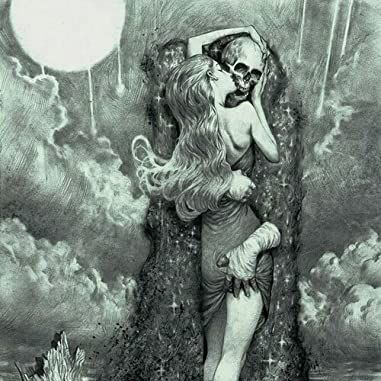
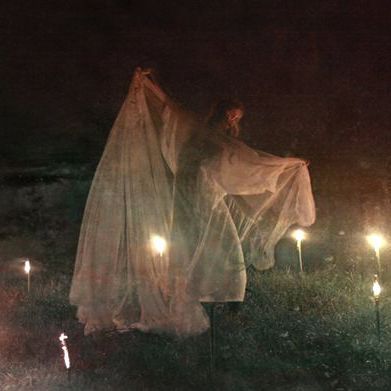


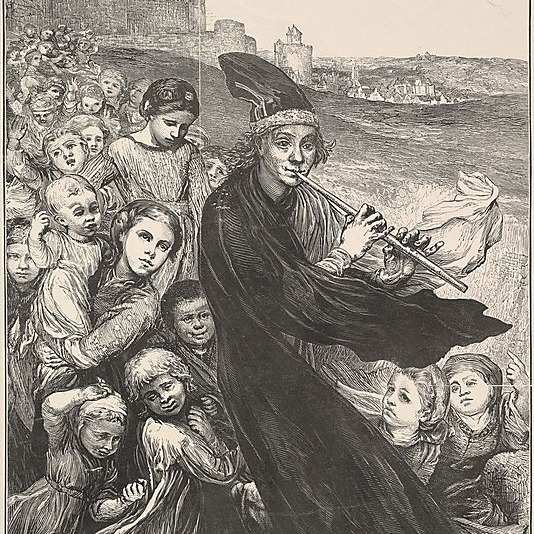

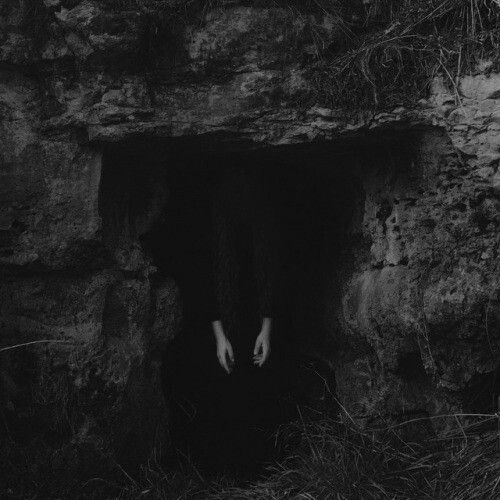
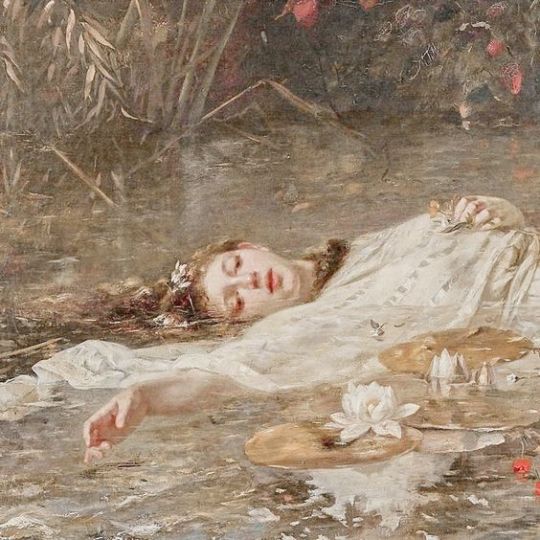
Red as Blood, or Tales from the Sisters Grimmer (1983)
A collection of dark fairy tale retellings by Tanith Lee 🌹
#red as blood or tales from the sisters grimmer#tanith lee#moodboard#fairy tale#occultism#sci fi#vampire#+
171 notes
·
View notes
Quote
'You spoke of love, but you're cruel,' she said.
'Yes. Love is cruel, when denied.'
Tanith Lee, from Red as Blood: Tales of the Sisters Grimmer
#love#cruel#rejection#unrequited love#vengeful#love is cruel#love hurts#and love is mean#dialogue#toxic relationships#quotes#lit#words#excerpts#quote#literature#tanith lee#aphorism#inspo#red as blood#red as blood tales of the sisters grimmer
71 notes
·
View notes
Text
“She wanted to scream or laugh or sing. She wanted to be quiet as a stone.”
- The Pied Piper, from Red as Blood, or Tales from the Sisters Grimmer by Tanith Lee
7 notes
·
View notes
Text

14 notes
·
View notes
Text
Little Book Review: Red as Blood
Author: Tanith Lee.
Publication Date: 1983.
Genre: Fantasy.
Premise: In this nine-story collection, Tanith Lee puts her own dark, woman-centered spin on classic fairy tales, set during various historical periods from antiquity to the far-off future.
Thoughts: This book is so early eighties that I half-expected it to invite me to a D&D game in a wood-paneled basement with shag carpeting. (I’m a modern lady. I play remotely, and also it’s a Star Wars RPG.) I don’t mean this as an insult; I like that it has a flavor. The subtitle reads “Tales from the Sisters Grimmer,” which is about right. Tanith Lee retains the heaviness and earthiness of the Brothers Grimm, but her stories operate on a more chaotic, unsettling moral logic. (The Grimms are harsh and very Lutheran, but you usually know who’s going to get it and why.) She also has a more positive attitude towards young ladies hooking up with Satan or becoming werewolves.
It’s a very solid collection, with a few stories that knocked me off my feet, a couple that were good but didn’t affect me as much, and a handful that didn’t quite coalesce but were nevertheless very interesting. Now, one by one:
“Paid Piper”: Cleci is a poor fourteen-year-old girl living in a village that worships Raur, a ratlike god. On the day of the annual Festival of Raur, a beautiful flutist comes to town, but is he there to bring joy or rain fury down on them all? This was a fine story, but I couldn’t really get into it. I was a little annoyed that the story was set in Asia during the first century BCE, but nothing indicated what part of Asia .
“Red as Blood”: What if Snow White was a vampire and her stepmother was rightly concerned about that? I read this story as a kid in a different anthology (Young Vampires), and it definitely stuck with me through the years. I’m not sure how I feel about the religious implications, but the concept is clever and the imagery is gorgeous.
“Thorns”: A wandering knight comes across a castle frozen in time. Can he wake the princess and break the spell? Does he even want to? The atmosphere in this story is lovely, but the ending is anticlimactic. To be fair, the dust jacket copy made it seem like he would unleash a more terrible curse by breaking the existing one; if I hadn’t been stoked about that ending, I probably wouldn’t have been as disappointed by reality.
“When the Clock Strikes”: My absolute favorite! I love Lee’s bizarre and vengeful Cinderella, the Venetian Renaissance setting, and the creepy framing device.
“The Golden Rope”: Innocent young Jaspre has been raised in a tower by an adoptive mother as a sacrifice for Satan, but Jaspre has her own ideas. I was a little burned out on Satan at this point, to be honest, and this story didn’t capture my imagination despite no obvious flaws.
“The Princess and Her Future”: Princess Jarasmi, anxious over her still-unknown future husband, receives a translucent golden ball from a mysterious stranger who says it will show her the future. This is perhaps he purest horror story in the collection, and its simplicity is very effective.
“Wolfland”: Anna, a spoiled city girl, reluctantly visits her eccentric grandmother’s remote, wolf-infested Scandinavian estate so she won’t be cut out of the will. Then werewolves happen. This story is clearly meant to be the star of the collection and, although there are one or two stories I like better, it deserves that status. I love the complicated grandmother and Anna’s ever-changing attitude towards werewolves.
“Black as Ink”: Viktor, a melancholy young man in turn-of-the-century Scandinavia, is spending a dull vacation with his well-meaning but overprotective mother and uncle. In his boredom, he finds himself intrigued by a mysterious young woman on a neighboring property. This story is a little different; instead of an extensively reworked but still recognizable version of a fairy tale, it seems to be very loosely inspired by the ballet Swan Lake. I love it, though; it’s deliciously enigmatic, and the unhappy Viktor is an interesting point-of-view character.
“Beauty”: Estár Levin, misfit youngest daughter of a prosperous merchant, is chosen/drafted to live with a mysterious alien on a distant planet, as is the custom in the twenty-third century. I thought this story would be very goofy (speculative fiction from 1983 that’s fixated on test-tube babies? C’mon), but the aesthetics grew on me. I also enjoyed Estár and her romance with the alien dude. The infodump at the end was way too complicated and undermined some of what I liked about Estár, though.
Goodreads Hot Take: “Not so keen on old stories being revamped,” imparts one reviewer, with no additional context. Girl, the subtitle is “Tales from the Sisters Grimmer.” I don’t know what you expected. Other reviewers, more fairly, complain of an excess of Satanism. This wasn’t such a problem for me, but ideally the collection would have contained 33% less Satanism, for variety’s sake.
17 notes
·
View notes
Text
“That I took you in,” she said, “was for a purpose. I did not, as you have seen, bring you here to serve me. And yet, I did take you, raise you, keep you, in peerlessness and in innocence, that you might serve—another. And now you are fit to learn of him and to look upon his image.”
Jaspre’s heart beat quickly, instinctually, and she waited, her eyes fixed only on the curtain. Which, in another instant, the woman drew aside.
Jaspre had never seen a man before. Inside the alcove stood a man. Then, as the lamplight beat on him, she beheld he was made of stone, a pale stone finely planed, fantastically burnished, colored with all the most convincing nuances of life.
His long and thickly curling hair was black, and lay seemingly loosely against his forehead, cheeks and shoulders. His features were chiseled, of a faintly Eastern cast, singularly handsome even to the point of beauty. His flesh was pale, but not with the dead pallor of the stone, rather a curious dark whiteness flushed through with somber tinctures, as if ichors flowed directly under the skin. In the eyes, which most of all might display lifelessness in a statue, there had been set dark jewels that glimmered, that seemed possessed of actual sight.
The image was represented as garbed in a black outer mantle of the ancient Parsua, diagonally cut and fringed with silver, with a broad belt that flashed with large bloody gems. Gems of blood and ink and blue water also crusted the shoes carved on his feet, and stared from his long fingers. One hand lay relaxedly at his side. The left hand was gracefully uplifted in an ambiguous gesture of offering or beckoning.
The statue’s feet rested upon a low plinth, and in the plinth some words had long ago been cut, their letters softened now by time that had, in no other form, impaired the freshness of the work. After a while, as if impelled, Jaspre looked at them and next leaned close.
Deo Arimanio, they read. Nox Invictus.
“The Golden Rope” by Tanith Lee. “Red as Blood,or Tales from the Sisters Grimmer”.
#tanith lee#british literature#literature#fantasy literature#british fantasy#red as blood#tales from the sisters grimmer#fairytale#fairytale retelling#rapunzel#beautiful words#1983#1980s#collection#the golden rope#mysticism#apocryphism#mythology
2 notes
·
View notes
Text
Red as Blood Collection by Tanith Lee
Love the #SistersGrimmer #FairyTales !!! #TanithLee

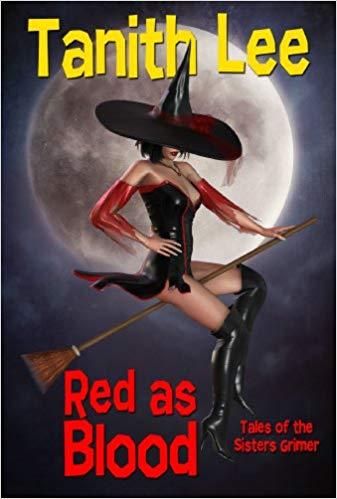
Title: Red as Blood Collection
Author: Tanith Lee
In: Red as Blood (Tanith Lee)
Rating Out of 5: 5 (I will read this again and again and again)
My Bookshelves: Dark fantasy, Fairy tales, Feminism, Retellings, Short story collections
Dates read: 23rd October – 17th December 2019
Pace: Medium
Format: Short story
Publisher: Wildside
Year: 1983
5th sentence, 74th page: There were carvings in the sides of the…
View On WordPress
0 notes
Text
Attempt at invoking something of Colleen Doran’s style in Neil Gaiman’s ‘Snow Glass Apples’ for a comic page on Tanith Lee’s vampire Snow White story, ‘Red as Blood’
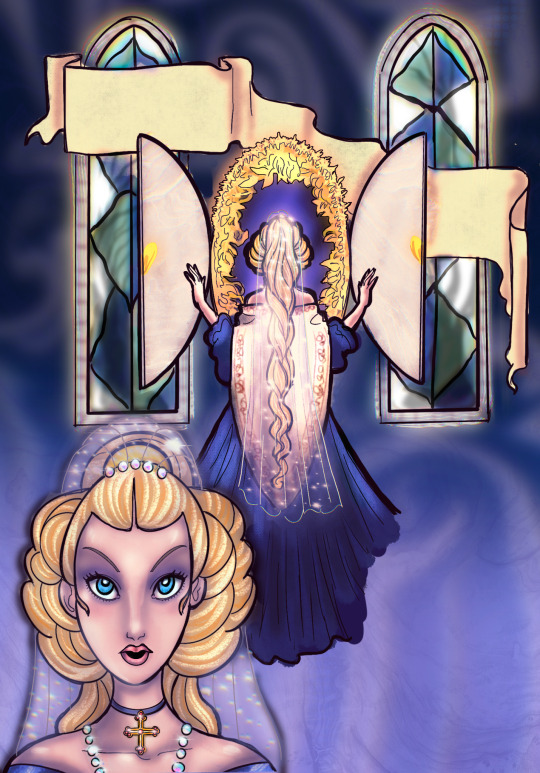

Hard work and longer then I thought and no where near as sofisticated but it was fun, might do more pages but definitely after food next time xD
(Also gotta up my planning for text boxes but that’s what practice is for)
#my art#snow white#tanith lee#neil gaiman#colleen doran#comics#fairytales#red as blood#snow glass apples#vampire Snow White#fairytale retelling#dark fairytale#witch queen
34 notes
·
View notes
Text
Reminisce of the time a few years ago I hunted for these books like a hawk because goodreads rec. them to me. These were quite hard to get and some I regretted having acquired them lol.
Here some of the titles
The Perilous Gard by Elizabeth Marie Pope. I love this one. Very Rereadable. I also like her other book, the Sherwood ring. No regrets on these
An Earthly knight by Janet McNaughton. Nope DNF. (I was in Tam lin phase then lol but this one I shall passed) Regrets!
Mara, Daughter of the Nile by Eloise Jarvis McGraw. This is so fun. I may reread sometimes in the future.
The Raging Quiet by Sherryl Jordan. I like the book fine but will not reread.
Time enough for drums by Ann Rinaldi. Right this was interesting for me but as the internet keep telling me the age gap in this one is bothering me a lot.
Keturah and lord death by Martine Leavitt. I couldn't really get pass the MC self consciousness and the way the story was told. Regrets!
Summers at castle auburn by Sharon Shinn. I love her Archangel book. (1 st book only) and this one also supposed to be without flaws. Only there are quite a few of issues that disturb me.
The Hollow kingdom by Claire B. Dunkle. Hmm will not reread. On the stockholm syndrome note.
A Face like glasses by Frances Hardinge. Was glued to the pages literally. Could not put it down. Felt the same thrills reading these like when I read Garth Nix's keys to the kingdom. Might reread but y'know it won't be like the first time ever again.
Dragon's bait by Vivian Vande Velde. Felt like a cliffhanger with no second book. Not that interesting. Regrets
11. The Blue sword by Robin Mckinley. Can't say I regret this but I'd felt that this should have been better. Not to mention the weird prequel book that I won't reread again.
12. The Belgariad series by David Eddings. Loved these while it lasted. I got bored with the second series. Not rereadable to me.
13. The Changeover by Margaret Mahy. Like it. Not gonna reread.
14. The Changeling sea by Patricia A. Mckillip. I regreted that this was the first Mckillip book I'd ever come across. Dreamy but not engaging. My favorite of hers are the forgotten beast of Eld, In the forest of Serre, the Riddlemaster series, and Winter rose.
15. War for the Oaks by Emma Bull. Very entertaining. I love it. Haven’t reread this since.
16. Song of the lioness series by Tamora Pierce. I was undecided about these. Well I like the Immortals better than this one. Trickster duology impressed me the most. Not regret these but still haven’t reread them.
17. Sabriel by Garth Nix. Special to me because I read this first on audiobook. What a thrilling experience. I was so crazy about the Abhorsen lore for months. Haven’t reread also.
18. Wildwood dancing by Juliet Merrilier. I was crazy about nearly all of her books for a time. Reread this along with Heart’s blood and Daughter of the forrest many times. It was good but didn’t really hold up to now.
19. Enchanted forest chronicles by Patricia C. Wrede. Like but not love. I like Mairelon’s books better or even the sorcerer and cecelia book.
20. Crown duel by Sherwood Smith. Love the books though Mel’s impulsiveness irked me lots of time. The starts of my obsession with her Sartorias-deles saga. Too many books with vastly different target audience, I gave up trying to read them all at some point lol. Love banner of the damned and the Inda books though.
21. Sally Lockhart’s series by Philip Pullman. Yeah I like his spectacular HDM but I like these more. Sally is so cool. No regrets.
22. The Black magician triology by Trudi Canavan. Used to be my guilty pleasure. because of the ending I will not reread.
23. The Farseer trilogy by Robin Hobb. Love these and the third trilogy also. Regret reading the second. Won’t reread because it was too painful. Also if I could one day reread them, I might continue with the series.
24. Earthsea cycle. By Ursula K. Le Guin. Favorite series. Reread many times. Will continue to recommend them.
25. Mistborn series. By Brandon Sanderson. Love these but won’t reread because I can’t go thru all of that again.
26. The chronicle of Prydain by Lloyd Alexander. Read on audiobook. Like them but haven’t reread since.
27. Lumatere chronicles by Melina Marchetta. So intense lol, it was good but I won’t go thru all that again.
30. Tales from the flat earth by Tanith lee. Did not regret. So dark and arabian-ish. I especially love Simmu’s stories and Chuz. Her B&B retelling in Red as blood is also my fav. So unique. But I regret buying her Claidi’s journals and Paradys books.
31. I, Coriander by Sally Gardner. So pretty cover. The stories was good for my teen years. Did not reread since.
32. A Company of swans by Eva Ibbotson. Gosh this was unexpectedly cute. So many weird things but still it works for me. Haven’t reread.
33. The Ivy tree by Mary Stewart. This book lied to me! I was so obsessed with the pseudo amnesia thing. First read on audiobook. One time is enough because the suspense can be experienced only one time.
34. The Seer and the sword by Victoria Hanley. Regrets. The plot was supposedly engaging but I couldn’t care less.
35. The Blue castle by L.M. Montgomery. Beautiful prose. Like the plot very much. Now if I could really find the time to read Anne of green gables.
36. Book of a thousand days by Shannon Hale. Nice. Can’t remember much but I like this enough to draw a doodle. I like her Austenland better. That was hilarious.
37. Narnia books by C.S. Lewis. I love these esp. the Dawn trader one. Haven’t reread yet.
39. The savage Damsel and the dwarf by Gerald Morris. Funny. I remembered that much.
Other books I regret are The books of Pelinor by Alison Croggon. Darkangel triology by Meredith Ann Pierce. Knight and Rogue by Hilari Bell, A college of magics by Caroline Stevermer, Riverside by Ellen Kushner.
27 notes
·
View notes
Text
Recommandations : SFFF
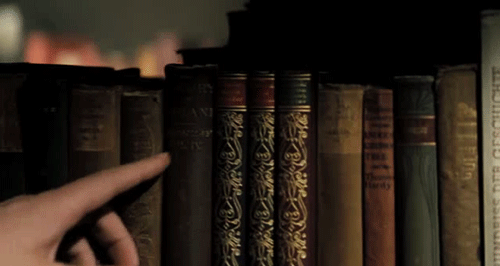
Après mon billet de recommandations sur les romans historiques, en voici un autre pour la SFFF (Science Fiction, Fantasy et Fantastique). Si vous suivez ce blog, vous m’avez souvent vu râler sur ce qui ne me convenait pas avec certains ouvrages de fantasy. Plutôt que de me concentrer sur les méandres de ma relation d’amour-haine avec ce genre, voici des livres que j’ai aimés.
Je serais ravie de lire vos recommandations, aussi n’hésitez pas à les partager avec moi !
(ça a été dur de ne pas mettre toute la bibliographie de Tanith Lee mais voilà je vous recommande l’autrice de manière générale)
En français :
-Le Prieuré de l’oranger, Samantha Shannon
-Le dit de la Terre plate (1 et 2), Tanith Lee
-Sabriel, Liraël, Abhorsen, Garth Nix
-Le chant des cavalières, Jeanne Marie Corrèze
-Boudicca, Jean-Laurent del Socorro
-Royaume de vents et de colères, Jean-Laurent del Socorro
-La cité des méduses, Emmi Itäranta
-La dixième sœur, le secret de Morgane, Cyrille Férec
-La fille qui avait bu la lune, Kelly Barnhill
-Le sang et l’or tomes 1 et 2, Kim Wilkins
-Les miracles du bazar Namiya, Keigo Higashino
-Mordre le bouclier, Justine Niogret
-L’autre moitié de l’homme, Joanna Russ
En anglais :
-Sisters of the vast black, Lina Rather
-Seafire, Natalie C. Parker
-The secret books of Paradys, Tanith Lee
-Red as blood: Tales from the sisters Grimmer, Tanith Lee
-The Ascendant trilogy (1,2,3), K.Arsenault Rivera
-The secret of Jin-shei, Alma Alexander
-The winter witch, Paula Brackston
-Lady Hotspur, Tessa Gratton
-In the night garden, Catherynne M. Valente
39 notes
·
View notes
Note
What Tanith Lee book would you start with?
Excellent question! There are some different possible entry points depending on your genre and tone preferences. These are my suggestions:
If you're here for more classic fantasy: try Volkhavaar or Tales from the Flat Earth
If you're here for sci-fi: try Biting the Sun
If you're here for straight-up gothic: try Dark Dance
If you're not sure whether you want to read Tanith Lee or Angela Carter: try her fairy tale collection Red As Blood
If you want to really dive into the deep end: try Vivia and go with my best wishes
64 notes
·
View notes
Text
"But as he held her now, the bandaging upon her healed wrists turned to jewels, the sacking robe to velvet. And, as in her dream, her hair grew like a wind and poured over like a tide, a streaming silver that was gold, until it brushed the ground.
The bleached trees parted and darkness ran through. A black horse, flamed with a sapphire mane and tail, and hung with stars, stood against the sinking moon.
He mounted Jaspre before him.
"The soil, the roots of the trees, will open,” he said. “My land lies there, beneath the earth. Whatever the woman told you of it you must unremember. The country is not as once it was, nor as you have seen it.”
Then the horse danced on the ground and the ground gave way. Far off, Jaspre glimpsed—not darkness—but a glimmering multi-colored luminescence, the flowering trees of an endless spring, the towers of a rainbow city, more beautiful than in any book, and winged with a gilded morning, there in the black pit of the world.
“And this is your kingdom,” the young girl sighed.
“This is my kingdom,” said the Prince of Darkness.
And to this they went."
― The Golden Rope (1983), from the Red as Blood or Tales from the Sisters Grimmer by Tanith Lee
#red as blood or tales from the sisters grimmer#tanith lee#Persephone and Hades#rapunzel#fairy tale#quote#+
113 notes
·
View notes